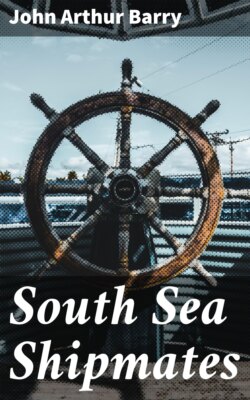Читать книгу South Sea Shipmates - John Arthur Barry - Страница 3
На сайте Литреса книга снята с продажи.
BIOGRAPHICAL PREFACE
ОглавлениеTable of Contents
Although Australia was his adopted country and he is counted as an Australian writer, John Arthur Barry was of British birth and upbringing, and of good family in the Old Country. Orphaned of both parents at an early age and with no other relations, by the time he was fourteen he had made up his boyish mind that he must and would "go to sea," and persuaded his guardian to expend his small patrimony on outfit and apprenticeship to the Merchant Service. His earlier sea experiences are faithfully described in his novel "A Son of the Sea" which is indeed a warning to parents and guardians against paying out money to send their boys to sea as so-called "apprentices."
But Arthur Barry soon surmounted the disagreeables and difficulties of the first steps in a profession to which he was devoted by nature, learned all that he could at sea, and, finishing his time with credit, he passed his examinations in due course as second and as first mate. But his voyages took him to Australia (in the 'seventies) and the gold diggings proved too attractive, so that his sea life alternated with spells ashore, which finally led to a permanent Bush life, first roving and then in settled employment on sheep-stations in New South Wales. During this time his natural gift of expression, and power of describing what he had seen and experienced, showed itself first in letters to friends at home, and then in contributions to local newspapers, followed by some successes in London periodicals. "The Graphic" and "Chambers Journal" first published his short stories and papers on Bush life. In 1893 he came home for a holiday, bringing many printed "cuttings" out of which a volume was made and published by Messrs Remington as "Steve Brown's Bunyip." To this Rudyard Kipling contributed some fine introductory verses ("The Sea-Wife") as a friendly gift from a younger man then on the rising wave of popularity to a rather older one whose early letters and adventures he used to hear as a boy from mutual friends.
Although Arthur Barry had a happy six months in London and might have got on in London journalistic and literary society he had no liking for town and conventional life, and could not stand the English winter, or try to get permanent work in the Old Country. He returned to New South Wales, and for a time to the sheep-station life, while he continued to write a number of stories, which were printed in the "Strand", "Cornhill", and other London magazines and papers. He intended to come back in a year or two; but this was not to be.
His first novel, "The Luck of the Native Born", a story of land and sea adventure, was published by Remington; then came a collection of reprinted sea pieces brought out by Methuen as "In the Great Deep", followed by the novel "A Son of the Sea" (Duckworth), and "Red Lion and Blue Star", and "Against the Tides of Fate", both reprints of short stories, and all favourably received by Press and public.
By this time pastoral affairs in Australia were not over prosperous, and Barry, giving up the Bush, found a permanent billet on a Sydney paper. Unfortunately in these years his health and eyesight were gradually failing, and though he produced some stories now and then, his work came to be almost entirely confined to his newspaper till the end, which came unexpectedly from ptomaine poisoning in September, 1911, at the age of sixty.
Barry was of a singularly lovable character, and made friends wherever he went. Though brave and adventurous, he was gentle and kindly by nature, and no roughness of life and companionship ever made him other than a gentleman in the best sense. He seemed to have a gift for getting on with all sorts and conditions of men on land and sea, and he sketches their various characters with sympathy and insight, and no little sense of humour. Some of his best work is descriptive. A devoted lover of wild nature, he gives in few words a vivid picture of each scene, of sunlit plain, dry bush, wild coast, or rugged harbour, or luxuriant southern island; but most lovingly the world of the sailing-ships and all possible effects in storm or calm to be encountered on that Sea of which he was for ever the lover and the Son.
This present volume was left in MS. at his death, and is thus his last memorial.
